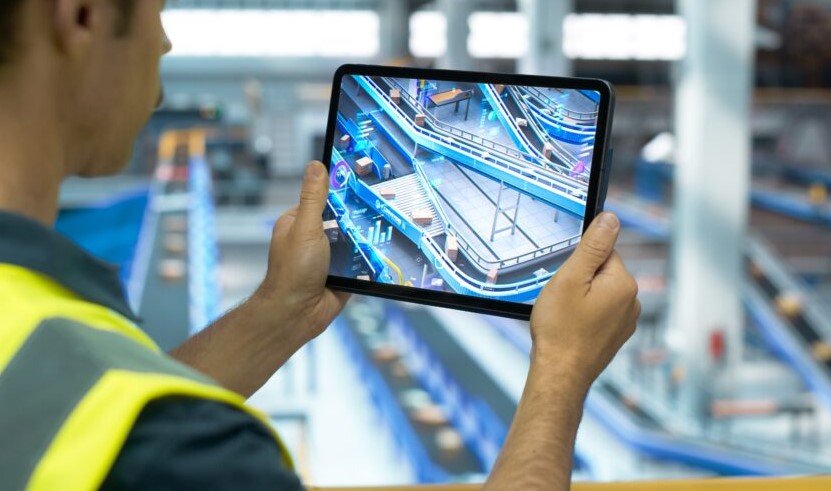Luxshare, a major Chinese assembler for Apple products, saw its shares rise sharply after news broke of a partnership with OpenAI to build a consumer AI device. The deal, reported late last week, focuses on creating hardware powered by advanced AI models like those behind ChatGPT, with a possible launch in late 2026 or early 2027.
Details of the OpenAI-Luxshare Partnership
OpenAI has teamed up with Luxshare to develop and produce a new consumer device that integrates its large language models. This move marks OpenAI’s push into hardware, aiming to bring AI directly into everyday gadgets.
Sources indicate the prototype is pocket-sized and could function like a smart speaker without a screen. It might compete with existing voice assistants from companies like Apple. OpenAI has been hiring former Apple engineers to strengthen its hardware team, led by an ex-Apple executive.
The partnership also involves talks with other suppliers for components such as speaker modules. This collaboration builds on OpenAI’s recent acquisition of a hardware startup for over six billion dollars, signaling a serious commitment to blending AI software with physical products.

OpenAI’s goal is to create devices that offer seamless AI interaction, from voice commands to personalized assistance. The company plans to launch multiple products, including wearables and smart home items, to expand AI’s role in daily life.
Stock Market Reaction and Financial Impact
Luxshare’s shares surged about 10 percent on the Shenzhen Stock Exchange following the report. This jump capped the daily trading limit and boosted the company’s year-to-date gains to around 50 percent.
Investors reacted positively to the news, seeing it as a growth opportunity for Luxshare beyond its Apple contracts. The firm is also exploring a secondary listing in Hong Kong, which could attract more international capital.
Here is a quick look at Luxshare’s recent stock performance:
| Date | Share Price Change | Year-to-Date Gain |
|---|---|---|
| September 22, 2025 | +10% | ~50% |
| Mid-2025 | +7.73% | ~40% |
| Early 2025 | +3.20% | ~20% |
This table shows how the OpenAI deal has accelerated Luxshare’s upward trend amid rising interest in AI hardware.
Background on Key Players Involved
Luxshare has built its reputation as a reliable assembler for high-end electronics, including Apple’s AirPods and other accessories. The company operates mainly in China and has expanded its capabilities in precision manufacturing.
OpenAI, known for ChatGPT, is led by CEO Sam Altman. The firm has been focusing on profitability while investing in growth areas like hardware. Altman has publicly stated a willingness to run at a loss short-term to capture market share in AI.
The partnership draws on talent from Apple’s ecosystem. OpenAI has partnered with former Apple designer Jony Ive, famous for iconic products like the iPhone. This expertise could help OpenAI design user-friendly AI devices that appeal to a broad audience.
Recent events in the AI space, such as major funding rounds and new model releases, highlight the timing of this deal. For instance, OpenAI’s collaborations with chipmakers for custom AI processors show a broader strategy to control both software and hardware.
Potential Challenges and Competition
Entering the hardware market brings hurdles for OpenAI. Developing consumer devices requires navigating supply chains, regulations, and competition from established players like Apple and Google.
Apple’s Siri-powered devices could face direct rivalry if OpenAI’s product succeeds. Analysts note that AI hardware must prioritize privacy and ease of use to gain traction.
- Privacy concerns: Users worry about data handling in AI devices.
- Market saturation: Many smart speakers already exist, so innovation is key.
- Regulatory issues: Global rules on AI and manufacturing could slow progress.
Despite these, the deal positions Luxshare and OpenAI to capitalize on the growing demand for AI-integrated gadgets.
Future Outlook for AI Hardware
Experts predict AI devices will transform how people interact with technology, moving beyond smartphones to more intuitive tools. OpenAI aims for a 2026 rollout, with potential expansions into glasses, wearables, and augmented reality headsets.
This partnership could disrupt the consumer electronics market, especially if it leads to affordable, powerful AI products. As AI advances, such hardware might handle tasks like real-time translation or personalized health advice.
The tech world is watching closely, with similar moves from other firms indicating a shift toward AI-native devices. For Luxshare, this could mean diversified revenue streams away from single clients like Apple.
What do you think about this development? Share your thoughts in the comments below or spread the word on social media to join the conversation on AI’s future in hardware.








